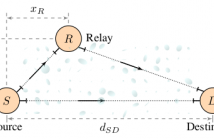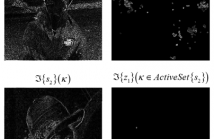
The IEEE Global Conference on Signal and Information Processing (GlobalSIP) is a flagship conference of the IEEE Signal Processing Society. GlobalSIP'15 will be held in Orlando, Florida, USA, December 14-16, 2015. The conference will focus on signal and information processing with an emphasis on up-and-coming signal processing themes. The conference will feature world-class speakers, tutorials, exhibits, and sessions consisting of poster or oral presentations. Outstanding papers will be selected for Best Paper Awards or Best Student Paper Awards; a paper is eligible for a best student paper award if the first author of the paper is a student. IEEE Signal Processing Society and National Science Foundation will provide travel grants to eligible students.
- Read more about Fast Coding Unit Selection Based on Local Texture Characteristics for HEVC Intra Frame
- Log in to post comments
- Categories:
 13 Views
13 Views- Read more about Super-Wideband Fine Spectrum Quantization for Low-rate High-Quality MDCT Coding Mode of The 3GPP EVS Codec
- Log in to post comments
This article presents a low bit-rate super wideband MDCT coder, which is adopted as a part of the recently standardized codec for Enhanced Voice Services. To maximize codec performance at 13.2 kbps, existing algorithms are reviewed and several new tools are introduced into the low bit-rate MDCT coder to improve the performance of the coder while coding music and mixed content. A subjective listening test demonstrates the advantage of the proposed system for 13.2 kbps when compared to AMR-WB+.
- Categories:
 13 Views
13 Views- Read more about Enhancing the Reliability of Epileptic Seizure Alarms for Scalp EEG Signals
- Log in to post comments
- Categories:
 1 Views
1 Views
- Read more about Rate-adaptive selective relaying using time diversity for relay-assisted FSO communications
- Log in to post comments
In this paper, a novel cooperative protocol for free-space optical (FSO) communication systems is proposed, wherein the performance analysis is evaluated over gamma-gamma (GG) fading channels with pointing errors. This novel relaying scheme is based on the optical path selection, source-destination (S-D) or source-relay-destination (S-R-D), with a greater value of fading gain or irradiance together with the use of repetition coding (RC), exploiting the potential time-diversity order available in the turbulent channel in order to maintain a high diversity order.
- Categories:
 20 Views
20 Views- Read more about A General Framework for the Design and Analysis of Sparse FIR Linear Equalizers
- Log in to post comments
Complexity of linear finite-impulse-response (FIR)
equalizers is proportional to the square of the number of nonzero
taps in the filter. This makes equalization of channels with long
impulse responses using either zero-forcing or minimum mean
square error (MMSE) filters computationally expensive. Sparse
equalization is a widely-used technique to solve this problem. In
this paper, a general framework is provided that transforms the
problem of sparse linear equalizers (LEs) design into the problem
- Categories:
 12 Views
12 Views- Read more about A new approach for supervised power disaggregation by using a deep recurrent LSTM network
- Log in to post comments
- Categories:
 28 Views
28 Views
- Read more about IMAGE UNMIXING SUCCESS ESTIMATION IN SPATIALLY VARYING SYSTEMS
- Log in to post comments
- Categories:
 8 Views
8 Views- Read more about The Influence of EM Estimation of Missing Nodes in DCM on Model Ranking)
- Log in to post comments
- Categories:
 4 Views
4 Views- Read more about Iterative Optimization for Max-Min SINR in Dense Small-Cell Multiuser MISO SWIPT System
- Log in to post comments
GSIP_v1.pdf
- Categories:
 15 Views
15 Views- Read more about 2015GlobalSIP_Diversity Analysis for Two-Way Multi-Relay Networks with Stochastic Energy Harvesting
- Log in to post comments
- Categories:
 8 Views
8 Views